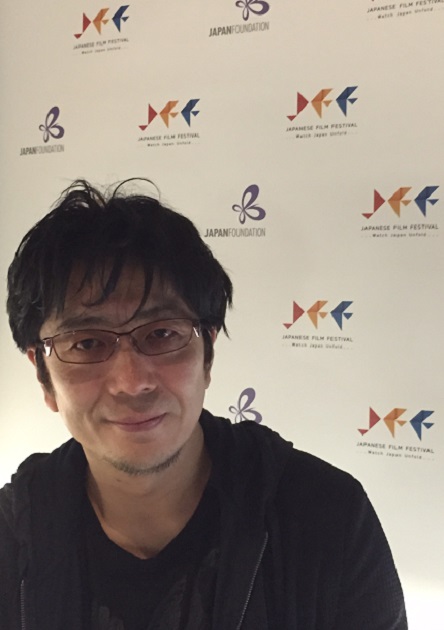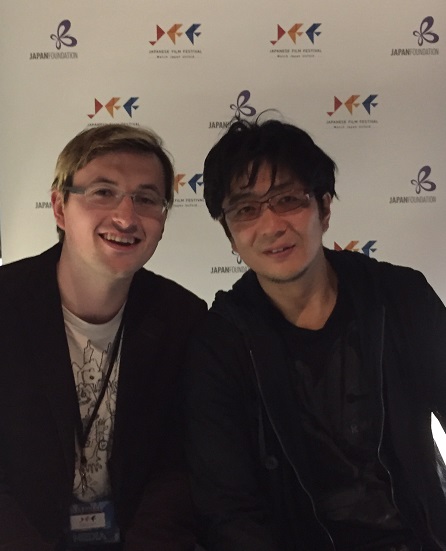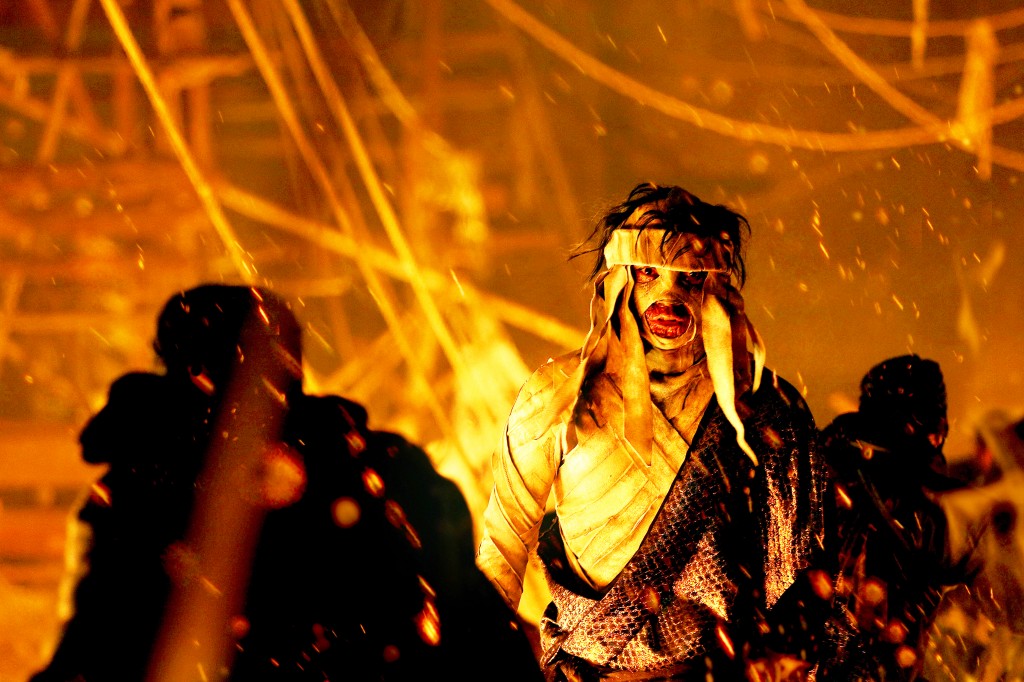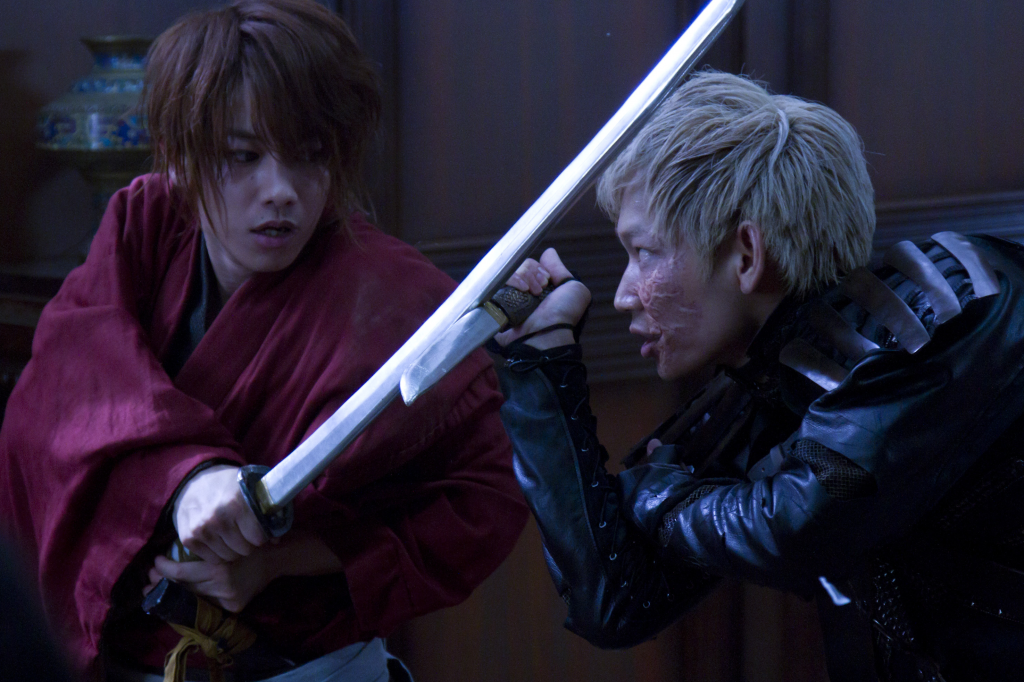Japan Film Festival 2014 Interview: Director Keishi Otomo On The KENSHIN Trilogy
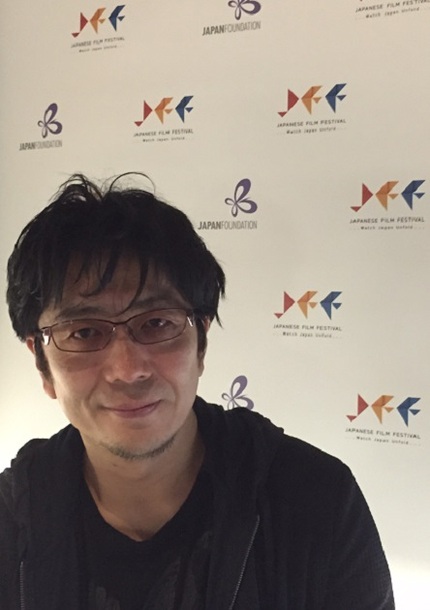
These glorious action spectacles enamored a sold out crowd with back-to-back screenings. The fan power was in full force and all three films equally impressed.
Here are links to our previous reviews of Kenshin and Kyoto Inferno. Please note I will be posting the review for the finale in the trilogy this week.
I had to great opportunity to sit down briefly with the trilogy director Keishi Otomo. Here I tried to avoid the same questions he has been asked about the trilogy; the results of our chat are below.
You were quoted at the opening night of this festival, saying that there are obvious benefits from working on small screen to making full length features for the cinema.
Your first work Vulture was soon followed by a blockbuster, the big budget Kenshin.
I was wondering how you adjusted from smaller films to blockbusters in such a short time?
I've got a lot of experience in TV as you know, the thing about that medium is that the audience at home has the option of switching it off and going to another channel, so the thing I worked really hard in television is how to not to let them switch off.
When I made my first film Vulture, I realized that the thing about movie audiences is that they pay the money up front, so they are invested in the film. So the major difference for me was this experience as a filmmaker because I am so used to them not changing channels, but this medium is a very different thing because they are there to see it till the end.
Moving from Vulture to Kenshin which was a big picture, what I wanted to do was use all the technique I had from TV that would prevent the audience from switching off, but apply it to the film, servicing the perceptions of the audience by applying every skill I had
What initially prompted a trilogy of Kenshin films?
The TV show I worked on Ryomaden was set a little before the Kenshin period, this was a drama series that focused on that turbulent time. The actor who plays Kenshin Takeru Sato had a similar role as an assassin in this TV series. In fact if I could not use him as Kenshin in the trilogy I would probably not have agreed to do the films!
In Kyoto Inferno and The Legend Ends there is a big conflict with the master that taught Kenshin, this is the most popular storyline in the arch and was something not featured in the first film.
From the planning stage it was always going to be a trilogy, but it has worked out the way that it has. you know Jet Li's Once Upon A Time In China, I wanted it to have that flavor. Mixed style? It's a good fit.
How did you handle the change in tone and scope film-by-film?
There was a point in developing the script that that the three films would have to have, out of necessity a different tone film-by-film. In each film Kenshin actually shows a different aspect of his being, his attitude, his learning, his mentality and so forth, so each film had to show his state of flux and development.
The first film is about Kenshin protecting the dojo of the school. That's a small story so we had to limit the scope and made a film that fit around that small story where Kenshin comes to appreciate the non-lethal sword form.
In the next two films, Kenshin comes across a foe Makoto Shishio (Otomo's favorite character) that is a shadow of who Kenshin is; both of them are orphans and assassins but Shishio wants to flip the switch and destroy Japan. It's a bigger conflict and a bigger scope.
You seem very at home with adaptations (Kenshin manga and Platinum Data novel) do you prefer them or working on your own original work?
Firstly, there are a lot of ideas I want to do as an original concept. However, the thing about manga is that it is going out to the world, and all the stories have a tremendous amount of investment and creative energy from their creators, so when you come across it you have the opportunity to be synergistic.
We also have our own crazy energy, living and dying by production so it is immensely enjoyable to throw this energy at theirs; to bring something to life that has a life in another medium is a beautiful challenge for a filmmaker. It is hard to give this up.
We are running out of time already, so here's one for the fans. What was the most memorable moment you can recall when filming the trilogy?
The last battle in the final film in the trilogy. It took a lot of energy from everybody to shoot, we all gave it our best effort and everyone was completely exhausted; it was at this point that we shot that epic scene!
Sato (Kenshin) and Fujiwara (Shishio) were so determined to get it done they melted into their roles and now can't remember doing it - they can't remember any of the choreographed moves!
Once they finished shooting they'd expelled so much energy they slept in the change rooms!
The Kenshin trilogy is still playing at the Japan Film Festival, see website for ticket information.






Do you feel this content is inappropriate or infringes upon your rights? Click here to report it, or see our DMCA policy.


